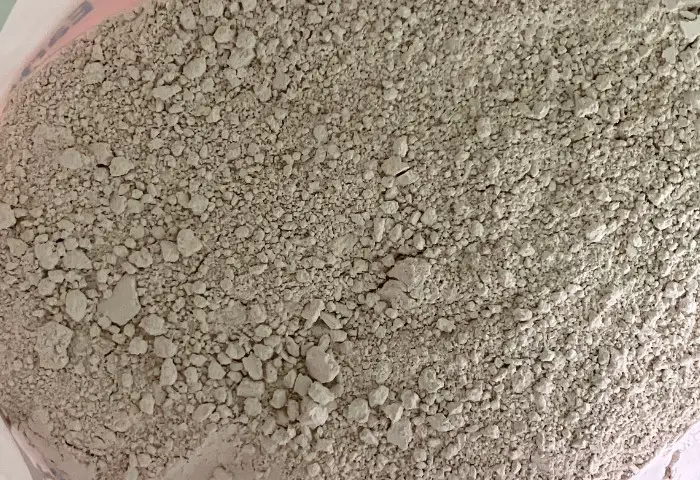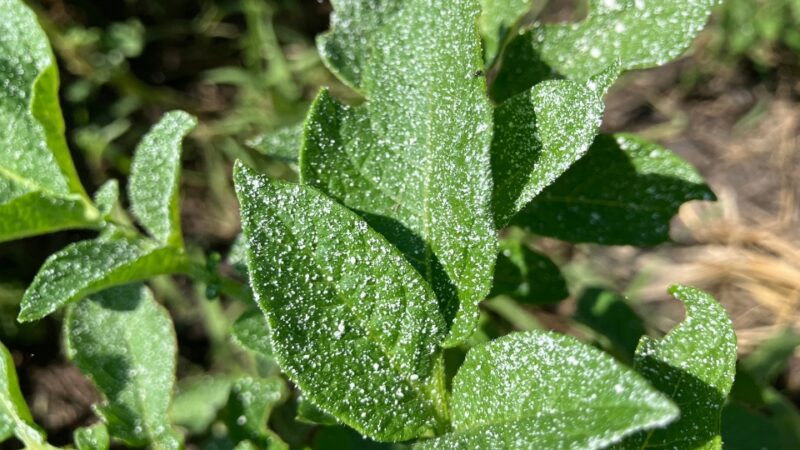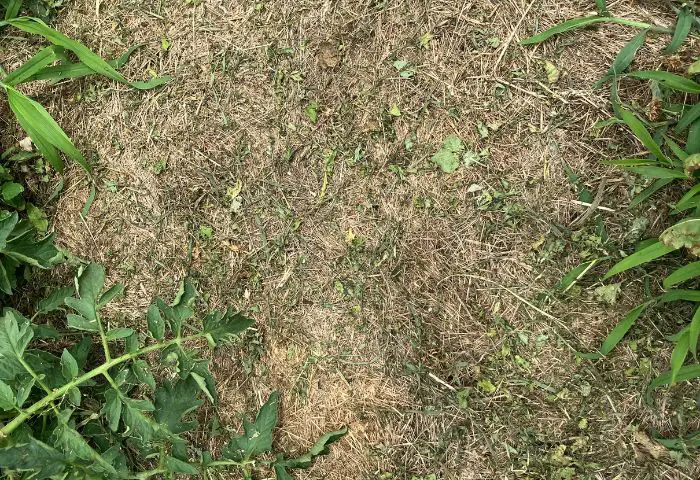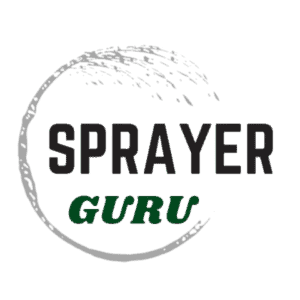Gardening is a rewarding hobby. Growing your own food is good for you physically and mentally. Dealing with weeds, insects, and other pests – not so much. Chemical solutions are available, and sometimes they are the most effective solution. However, when possible, I prefer natural methods to reduce the risk to my family, pets, and myself.
Finding natural solutions that actually work is time-consuming, so I compiled a list of effective natural pest control options to keep your garden healthy and thriving.
Effective Natural Pest Control Methods
1. Diatomaceous Earth
You may have heard of this one before but might not be sure what it is. Diatomaceous earth is basically a powder made from tiny fossilized water plants called diatoms. When you sprinkle it around your garden, it helps to get rid of pests like ants, fleas, and aphids by drying them out. Just make sure you’re using the food-grade kind for safety. It’s a natural and effective way to protect your plants without using harsh chemicals.

Diatomaceous earth works because of its microscopic sharp edges. When insects like ants, fleas, and aphids come into contact with it, the powder sticks to their exoskeletons. The sharp particles cut through the insects’ protective outer layer, causing them to lose moisture and dehydrate. Essentially, it dries them out from the outside in, leading to their death. This process is purely mechanical, so it doesn’t involve any chemicals, making it a safe option for pest control in your garden.
In our garden, we used Harris Food Grade DE.

Note: Diatomaceous Earth is a fine powder that can become airborne easily. Inhaling it can irritate your lungs and respiratory system. Always wear a mask or respirator when handling it to avoid breathing in the dust.
If you want to try it out: Diatomaceous Earth
2. Neem Oil
Neem oil, which comes from the seeds of the neem tree, is a powerful natural pesticide. It messes with the life cycle of insects, stopping them from eating and reproducing. This makes it great for dealing with pests like aphids, beetles, and caterpillars.
Use a handheld pump sprayer or a hose-end sprayer. For small gardens, these are sufficient but for a large area (1/2 acre or more) a boom sprayer can be more efficient.
Try it out: Natural Guard Neem Oil Concentrate
3. Mulching
Mulching is a highly effective gardening technique that involves applying a layer of material to your garden beds to prevent weeds from growing. By blocking sunlight, mulch inhibits weed seed germination and growth, while also helping to reduce soil temperature, which creates a less favorable environment for weeds.
This practice is not 100% effective but it really reduces the number of weeds that pop up. I have seen it work firsthand both on farmland and in my own garden. Using this method makes the next strategy on the list much easier.


4. Hand Weeding
Sometimes, the simplest solution is the best. Regular hand weeding can keep your garden free of unwanted plants. Be sure to pull out the entire plant, root and all. You can use a weeding tool to help you remove the entire root system, preventing regrowth.
5. Beneficial Nematodes
Beneficial nematodes are microscopic worms that prey on garden pests like grubs and root weevils. Once inside, they release bacteria that kill the pests from the inside out, usually within a few days. They are safe for plants, pets, and humans.
You simply mix nematodes with water and apply them to your garden with a sprayer. A hand pump sprayer or backpack sprayer works well. It is important to note that the mixed solution may require a larger nozzle size and screen so it doesn’t plug your sprayer. Rinse and clean your sprayer after applying nematode mixtures as you would with any other pesticide.
While beneficial nematodes are an effective and more natural pest control method, they have some downsides. First, they are expensive. They also require moist soil and specific temperatures to thrive, making them sensitive to environmental conditions. Proper application is crucial, and they have a short shelf life, needing refrigeration and timely use.
Different nematode species target specific pests, so choosing the right type is essential. Although generally safe, there’s a slight risk of affecting non-target soil organisms. Despite these challenges, nematodes are a valuable part of integrated pest management strategies.
You can read more about how to obtain and apply them here: Entonem
Related: What Kind of Sprayer Do I Need?
6. Horticultural Vinegar
Horticultural vinegar is great for killing weeds because its high acidity burns and dehydrates them. It’s especially effective on young, small weeds, though larger, established ones might need a few applications. For best results, spray the vinegar directly onto the weeds using a spray bottle or garden sprayer on a sunny day, as the heat helps boost its effectiveness.
Be very careful when spraying, as horticultural vinegar can harm your good plants just as easily as weeds since it kills whatever it touches. To protect your plants, you can use a piece of cardboard, a garbage bag, or some other sort of shield to cover them while you spray the weeds.
Safety First: Wear gloves and eye protection. The high acidity can irritate your skin and eyes.
7. Monterey B.t. RTU:
This biological insecticide is specially designed to control worms and caterpillars that can wreak havoc on fruits, vegetables, ornamentals, and shade trees. Unlike chemical pesticides, it uses natural bacteria or fungi to target and eliminate these pests without harming your plants or beneficial insects.
It’s safe to use around your home garden, making it a great choice for families and pets. To apply, simply follow the product instructions, typically mixing it with water and spraying it directly onto the affected plants. This method ensures that the insecticide reaches the pests while minimizing any potential impact on the surrounding environment. Regular use can help keep your garden healthy and free from destructive insects.
Try it out: Monterey B.t. RTU
8. Essentria IC3 Insecticide Concentrate
Essentria IC3 Insecticide Concentrate is a versatile and powerful broad-spectrum insecticide made from a blend of essential oils, such as peppermint, clove, and rosemary. These natural ingredients make it highly effective against a wide range of crawling and flying insects, including ants, roaches, mosquitoes, flies, and more.
The essential oils not only kill the insects on contact but also leave a residual effect that helps to repel new pests from settling in treated areas.
One of the standout features of Essentria IC3 is its safety profile. Unlike many chemical insecticides, this product is safe to use around pets and children, making it ideal for use in homes, gardens, and other areas where your family and furry friends spend time.
Try it out: Essentria IC3
9. Fertilome Spinosad Soap:
Fertilome Spinosad Soap is a potent insecticidal soap designed to control foliage-feeding insects on outdoor plants and in non-commercial greenhouses. This dual-action product combines the insect-killing power of Spinosad, a natural substance derived from soil bacteria, with the effectiveness of soap to tackle a wide range of pests.
Because it’s safe for use around people, pets, and beneficial insects when used as directed, Fertilome Spinosad Soap is an excellent choice for gardeners looking to protect their plants without relying on harsh chemicals. Regular use can help keep your plants healthy and pest-free, promoting vigorous growth and abundant blooms.
Try it out: Fertilome Spinosad Soap
10. Boiling Water
Pouring boiling water directly onto weeds is a quick and effective way to kill them instantly. This method works by scalding the weeds, causing the plant cells to burst and the weeds to die off rapidly. It’s particularly effective for weeds growing in cracks, driveways, sidewalks, and other pathways where it’s difficult to remove them manually.
Conclusion
Incorporating these natural pest control methods will help maintain a beautiful, healthy garden without relying on harmful chemicals.
